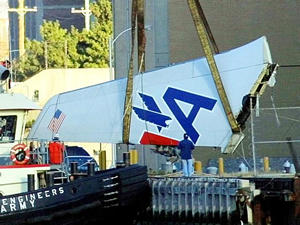No... I meant that "repercussions" are not the same as "application of the law".
Really..
Only when it serves themselves.
It's really sad that you make that generalisation about all people. Do you treat your kids as if they think that way?
We shrugged off hundreds of thousands of deaths over the years and refused to actually do something to stop actual killings..
Not at all the same thing.
People do not care. It is naive to assume that if someone is directly responsible for this, that they may actually care. If they did care (and this is based on if someone is directly responsible), they would have spoken up by now and/or ensured that the products were pulled off the shelves. Not remained silent.
Fear of punishment is a powerful silencer, Bells. And once again, you're assuming that some specific culpable action is directly responsible for this outbreak.
Most people
do care.
Look at drink driving rates and people who speed or drive dangerously.
Look at the number of people who sell drugs. Look at the number of organisations and people who drive defective vehicles or machinery. Then get back to me.
What do you expect we will find?
How will we use that data to test our hypotheses?
Of all people who i) sometimes drink alcohol, ii) sometimes drive, and iii) believe that driving under the influence of alcohol is dangerous to others, what proportion do you think do drive under the influence?
If "people don't care", then that should be a large proportion (how large? >90%? >50%?)
If "people do care", then that should be a small proportion (how small? <10%? <50%?)
Likewise for people who sell drugs. What proportion of people sell dangerous drugs? Most? Few?
What proportion of people/organisations do you think knowingly drive defective vehicles or machinery while believing there is a significant danger?
And I can assure you, if someone is directly responsible and you give them a cookie and say 'there there, it's all fine', it will happen again and again because people will know they can get away with it. People won't care because they will know there will be no legal ramifications.
I'm not suggesting a complete, carte blanche, Bells.
If an investigation does find serious wrongdoing, then of course that needs to be addressed.
But, a large degree of lenience does need to be offered in order to find systemic problems and cultures of poor practice.
otherwise, you get the situation we currently have in the health industry (and many others), where people are afraid to speak up, and people like Dr Patel can get away with not-quite-murder for far too long.
People do care, Bells.
And you have completely misread and misrepresented my argument. I have been very consistent in saying that if someone is responsible and that it is more than likely that we will never know what caused it or how it got into and onto the sprouts.
That's because people are afraid to speak up for fear of punishment.
Don't you see? There could be easily fixable systematic problem in a workplace or industry that discourages people from doing the right things.
But, if people don't speak up for fear of punishment, then how are you going to find out?
Here's a thought exercise:
Imagine this handwashing protocol:
- Scrub hands 3 minutes
- Rinse
- Wait for hands to air dry, with hands above elbows.
- Don gloves
Say we know that this protocol is effective in preventing transmission of foodborne pathogens.
Say that it becomes common practice in a workplace to take shortcuts, because of time pressure or something - people scrub for a shorter time, or don't wait for their hands to dry.
Mostly, this might still be OK. But on the one time in a hundred thousand that it isn't, a food poisoning incident happens.
What will the workers say?
If they are afraid of punishment, they are likely to not report that they don't stick to the protocol, the protocol's failure-in-practice might go undiscovered, and future outbreaks might not be prevented.
Here's another thought exercise:
Imagine that the handwashing protocol has a 0.1% failure rate for people who have an active diarrheal infection, so workers with diarrhea are required to take sick leave.
Imagine that a worker has cronic diarrhea from crohne's disease. They have used up their sick leave, they need this job, and they know that their diarrhea isn't due to an infection, but they also know that the diarrhea protocol doesn't differentiate between diarrheas, so they hide their condition and continue working.
Unknown to them, they also become infected with a diarrheal bacteria, and unluckily cause an outbreak.
Will they tell their story? Or will they keep mum for fear of punishment?
Should they be punished?
Do you see that a culture of punitive repercussions is damaging?



